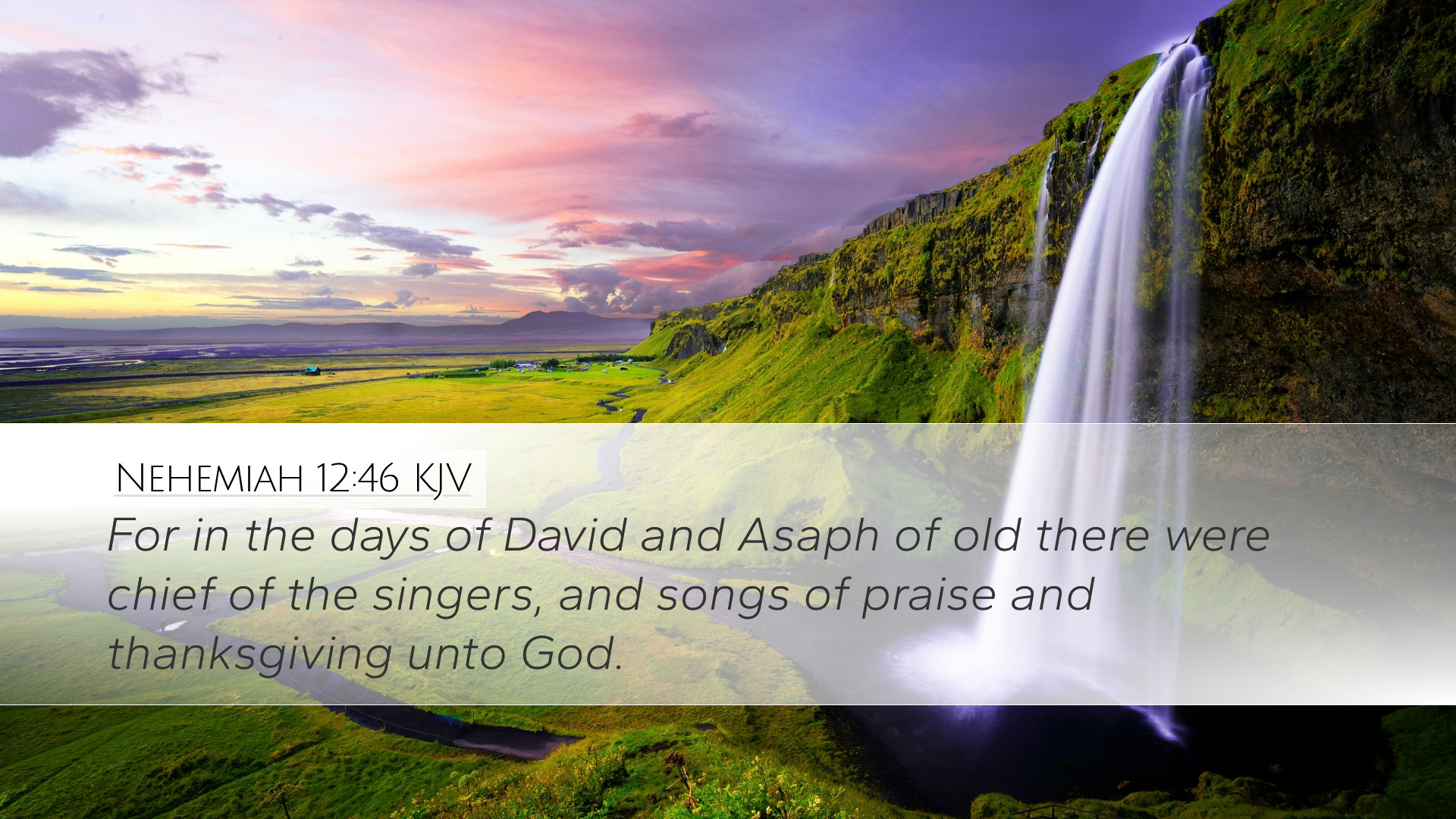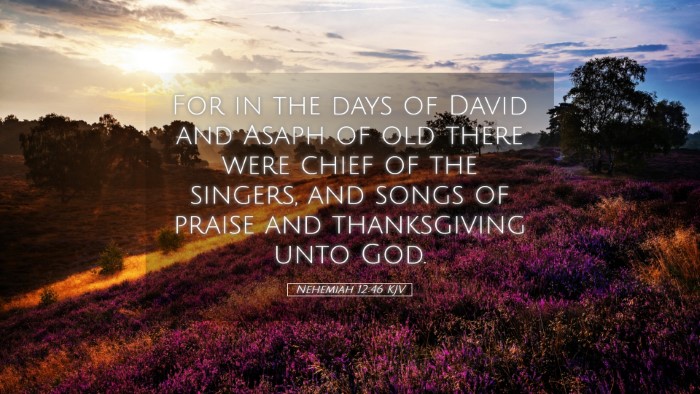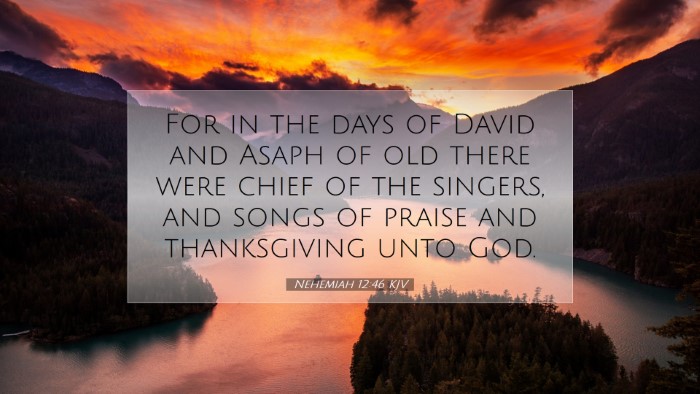Commentary on Nehemiah 12:46
Nehemiah 12:46 reads: "For in the days of David and Asaph there were chief of the singers, and songs of praise and thanksgiving unto God." This verse marks a significant moment in the history of the Israelites, highlighting the importance of worship in the post-exilic community.
Historical Context
This verse reflects the revival of temple worship under Nehemiah's leadership, echoing the practices established during the reigns of David and Asaph. Understanding the historical backdrop is crucial to appreciate the depth of this verse.
- Restoration of Worship: The return from Babylonian exile was not just a physical return but a spiritual renewal. Nehemiah organized the people to restore the temple and its services, thereby restoring their identity and connection to God.
- Davidic Leadership: King David is celebrated for establishing a permanent place of worship. He instituted the order of singers and musicians, which signified the centrality of worship in the life of Israel.
- Role of Asaph: Asaph, a prominent figure in the Levitical order, was noted for his psalms, which greatly contributed to the worship life of Israel. His legacy lived on through generations and was integral in the leadership of worship.
Theological Insights
This verse underscores several theological themes that are pivotal for understanding the essence of biblical worship.
- Worship as Central to Community Life: Worship is portrayed not just as an individual act but as a community-centered event. The participation of chief singers indicates that leadership and organization in worship matters significantly to God.
- Expression of Gratitude: The mention of “songs of praise and thanksgiving” points to the responsive nature of worship. The Israelites recognized God's faithfulness and mercy, which calls for an expressive return of gratitude through song.
- Continuity of Worship Across Generations: The reference to both David and Asaph illustrates how worship practices and expressions are a continuum. This legacy is not merely historical; it invites contemporary worshippers to engage in the same spiritual richness.
Insights from Commentators
Matthew Henry
Matthew Henry emphasizes the importance of music in worship, articulating that songs of praise serve to draw the hearts of the people towards God. He believed that music is one of the most effective means of communicating joy and serving the collective experience of the community.
Albert Barnes
Albert Barnes notes that the reference to chief singers showcases an organized approach to worship. He argues that these roles signify more than just musical abilities; they reflect a divinely-ordained structure that is essential for properly honoring God in communal settings.
Adam Clarke
Adam Clarke discusses how this verse represents a turning point for the Hebrew people after exile. He elaborates on the psychological significance of returning to worship, which provides a foundation for rebuilding their national identity and spiritual integrity.
Practical Applications for Today
As we consider Nehemiah 12:46, several practical applications emerge that can inform the worship practices of today's church.
- Revitalization of Worship: Churches today can learn from Nehemiah’s commitment to restore worship. Regularly assessing and renewing worship practices ensures they remain vibrant and relevant for the congregation.
- Leadership in Worship: The role of worship leaders is vital. It is essential to raise up and support individuals who guide the congregation in songs of praise, reflecting their spiritual maturity and musical skills.
- Inclusivity in Worship: Encouraging contributions from various members of the church community, regardless of their background, fosters an environment where diverse expressions of praise can thrive.
- Thanksgiving as a Worship Element: Integrating moments of thanksgiving into worship services acknowledges God’s provision and encourages a culture of gratitude among congregants.
Conclusion
Nehemiah 12:46 serves as a powerful reminder of the historical and ongoing significance of worship in the life of a believer and a community. By acknowledging the authorship and intention behind the verses and applying them to contemporary contexts, we cultivate a deeper understanding of our posture before God.


